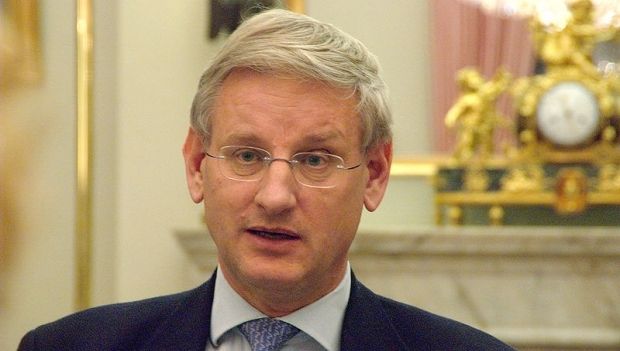
"Ukraine has become the worst of all post-Soviet states, where nepotism and corruption have disrupted production potential, which resulted in the country being left further and further behind other post-communist countries with transition economies - the most notable example being Poland: Despite the fact that both countries previously had roughly the same GDP per capita, today Poland is more than three times ahead.
"The Orange Revolution in 2004 proved to be a failure for most of Ukrainians,” Bildt said.
“The sought-for break from the past did not occur because a political struggle among the new leaders of the country blocked the implementation of any serious reforms."
At the same time, Bildt noted that Ukraine had been negotiating free trade and association agreement with the EU since 2007, and that the process was completed in early 2012.
"Then the Kremlin, much more actively than ever, launched an offensive to turn Ukraine away from the agreement with the EU, which was supported even by [former Ukrainian President Viktor] Yanukovych and his Party of Regions. The rest belongs to the realm of history" Bildt said.
According to Bildt, Western sanctions against Russia undoubtedly emphasize the serious stance of the EU and the United States against Putin's efforts to undermine the basic principles of European security and international law.
"But even a weakened Russia will still have a strong influence due to its close proximity. In the end, only by being strong and determined can Ukraine block Russia’s revisionist ambitions," Bildt said.
He said he believes that "Sunday’s elections will help establish a government that will be strongly committed to carrying out radical reforms in the country." If this is done, Bildt said he expects active support for Ukraine from the international community, including financial assistance, "and if this agenda is successful, the Kremlin revisionist plan will be blocked, while provoking a much-needed wave of reforms in Russia itself.”
"But if the reform fails, there is little doubt that the Kremlin will disregard its policy until it reaches its goals in Kyiv. Putin is not in a hurry, but he clearly knows what he wants," Bildt said.
"Revisionism could turn into a direct revanchism,” Bildt warned.
"By that time, it may be too late to prevent the slide towards a wider confrontation. That is why the emergence of a strong and democratic Ukraine after decades of failure is so important now. Sunday’s elections are crucial for Ukraine, but they are also a means to facilitate Russia's transformation into a true democratic member of the European family."

